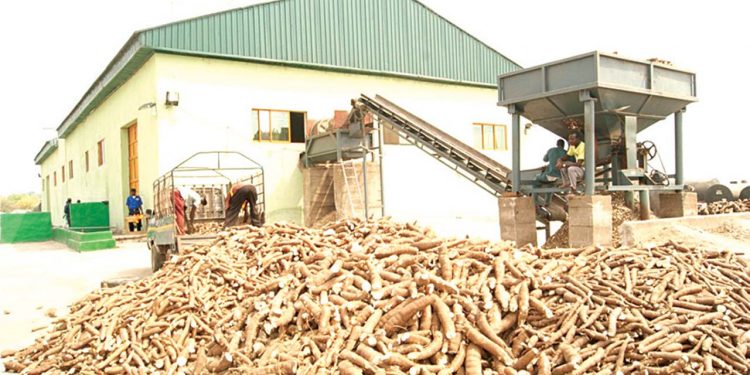The National Agricultural Development Fund (NADF) has partnered with Psaltry International Company Limited to launch a blended on-lending financing program aimed at empowering women in agriculture in Oyo State. Unveiled during Psaltry’s 20th anniversary celebration at its plant in Alayide village, Awaye, the initiative targets 12,000 young women in cassava cultivation during its first phase, with plans to expand to 45,000 women by the program’s end.
Supported by the Mastercard Foundation and IDH, the NADF Blended Finance On-Lending Programme (NADFBFP) sees NADF contributing N798 million, representing 51 per cent of total funding, while the Mastercard Foundation provides the remaining 49 per cent. The financing will cover the cultivation of 2,400 hectares of cassava through Psaltry’s network of outgrowers and ingrowers, with FCMB responsible for fund disbursement.
Executive Secretary of NADF, Mohammed Ibrahim, represented by General Manager Abiodun Sosanya, emphasized that the program is designed to meet the working capital needs of Psaltry while ensuring timely access to quality inputs, market availability through backward integration, reduced production costs via subsidised lending, and value addition in cassava processing. “This collaboration seeks to support the working capital needs of Psaltry International through the cultivation of cassava by a dedicated network of farmers,” he said.
FCMB’s MD/CEO, Yemisi Edun, represented by Executive Director Obaro Odeghe, described the collaboration as transformational. “This initiative enables Psaltry to scale up cassava and sorbitol production while addressing Nigeria’s agricultural finance gap. NADF’s support demonstrates the power of purposeful public-private partnerships in repositioning agriculture as a key economic driver,” she said.
Psaltry International’s Founder and CEO, Oluyemisi Iranloye, highlighted the program’s impact on local communities. “As we celebrate 20 years of Psaltry, this collaboration will initially impact 15,000 women and 45,000 by the end. It provides import substitution, strengthens local supply chains, and supports youth, internally displaced persons, and people with disabilities,” she said.
The initiative aligns with President Bola Tinubu’s Renewed Hope Agenda, aiming to boost food security, increase local production, reduce import dependence, and economically empower rural women. By leveraging blended finance, the program demonstrates a replicable model for scaling investment in Nigeria’s agricultural sector while de-risking value chains and enhancing smallholder access to structured financing.
The Mastercard Foundation continues to play a key role in supporting Nigerian farmers, particularly women, youth, and persons with disabilities, strengthening productivity, resilience, and inclusive growth in the agricultural sector.










